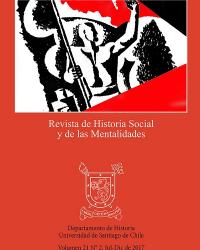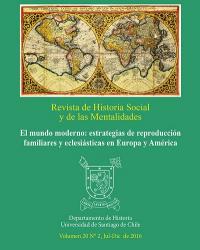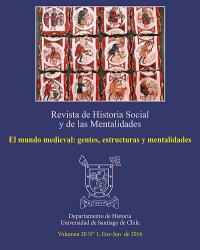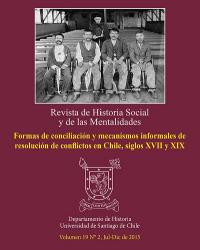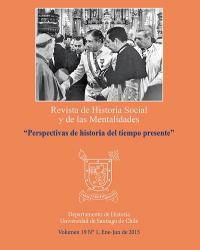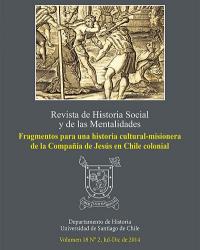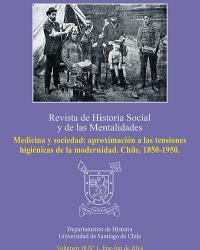Due to a hack of the institutional platform, articles before Vol. 22 No. 1 2018 are available at https://rhistoria.usach.cl/
Archives
-
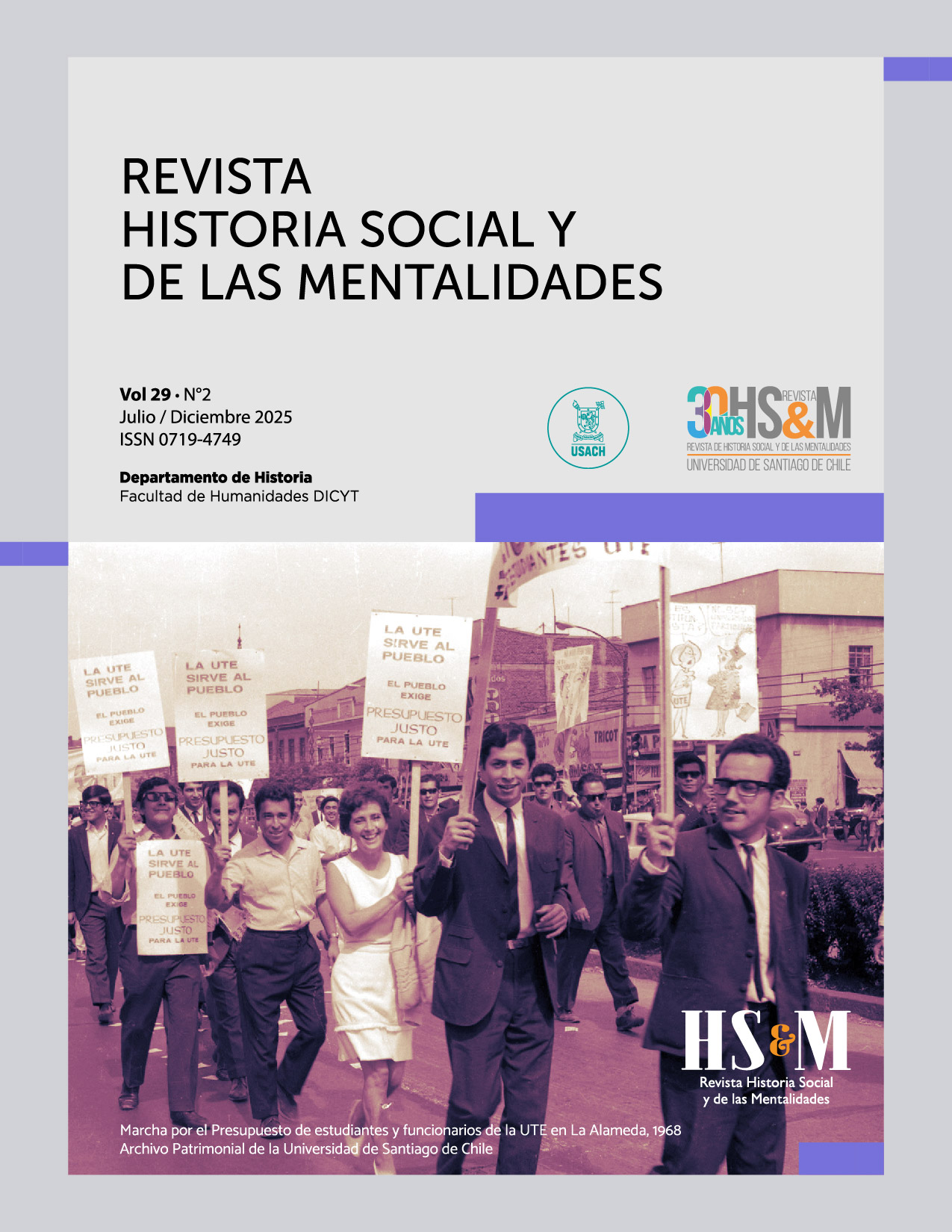
TEMA LIBRE
Vol. 29 No. 2 (2025)This issue of the Journal of Historia Social y de las Metalidades brings together a diverse collection of articles and reviews submitted to our publication. These reflect the broad spectrum of historiographical topics that the Journal promotes and disseminates, ranging from those characteristic of social and economic history to others more closely linked to studies on politics and emotions. Furthermore, the texts in this issue cover a wide period, incorporating analyses of virtually the entire 20th century, although with a particular focus on Chile.
-
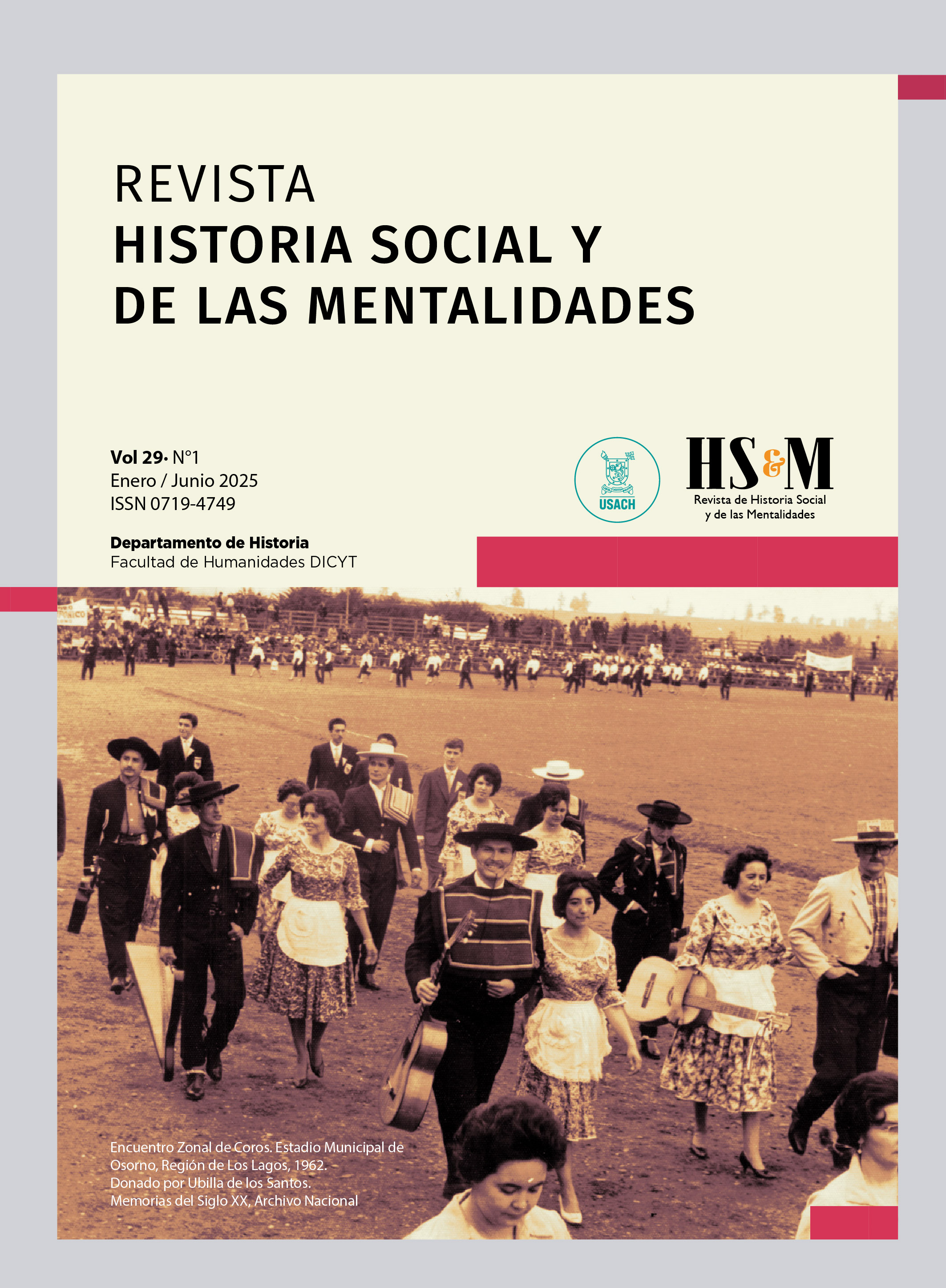
Tradiciones inventadas y estereotipos culturales en América Latina, siglos XIX y XX
Vol. 29 No. 1 (2025)This issue of the Social History and Mentalities Journal, focuses on cultural history. It features a dossier curated by historians Karen Donoso Fritz and Matías Casas, titled "Invented Traditions and Cultural Stereotypes in Latin America, 19th and 20th Centuries", along with other articles related to the aforementioned field of historiography.
-
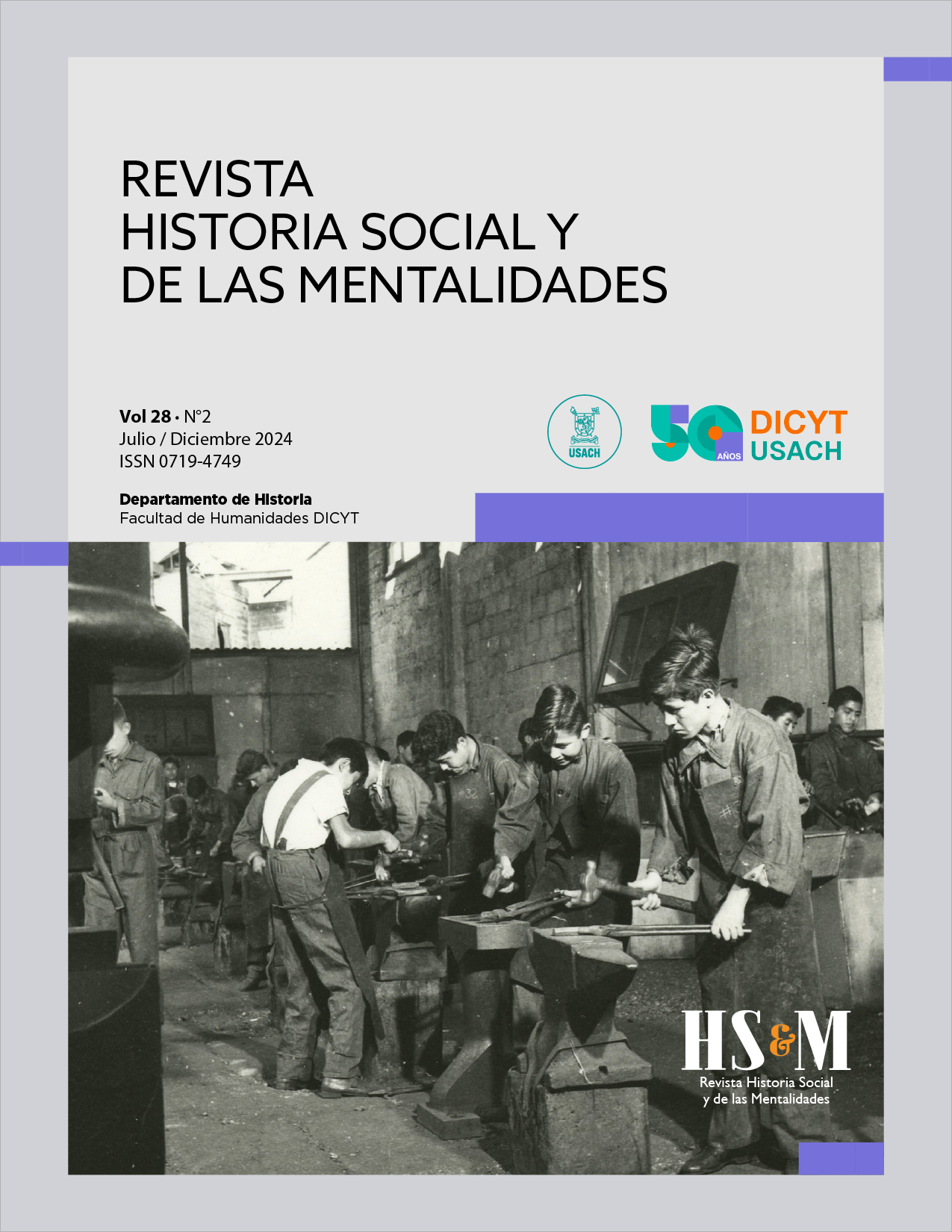
New Horizons and Old Tensions: History, Memory, and Emotions in the 21st Century
Vol. 28 No. 2 (2024)This issue of the Journal of Social History and Mentalities brings together studies that delve into the intersections of history, memory, and emotions in contexts shaped by crises, transformation, and political tensions. From the impact of the Anthropocene on historiography to the dynamics of power and memory during state terrorism, the featured articles offer an interdisciplinary approach to pressing contemporary challenges.
Highlights include explorations of free love and emotions within anarchist movements, the global circulation of ideas during Chile’s democratic transition, and the influence of science during the Cold War. Also featured are studies on childhood and domestic service in the late colonial period and Francisco Bilbao’s anti-colonialist critiques, which challenge dominant narratives and open new historiographical paths.
A Volume to Rethink the Future Through the Past
With innovative approaches and cross-disciplinary methodologies, this issue provides a platform for reflecting on current challenges, fostering dialogue between the Humanities and Social Sciences. -
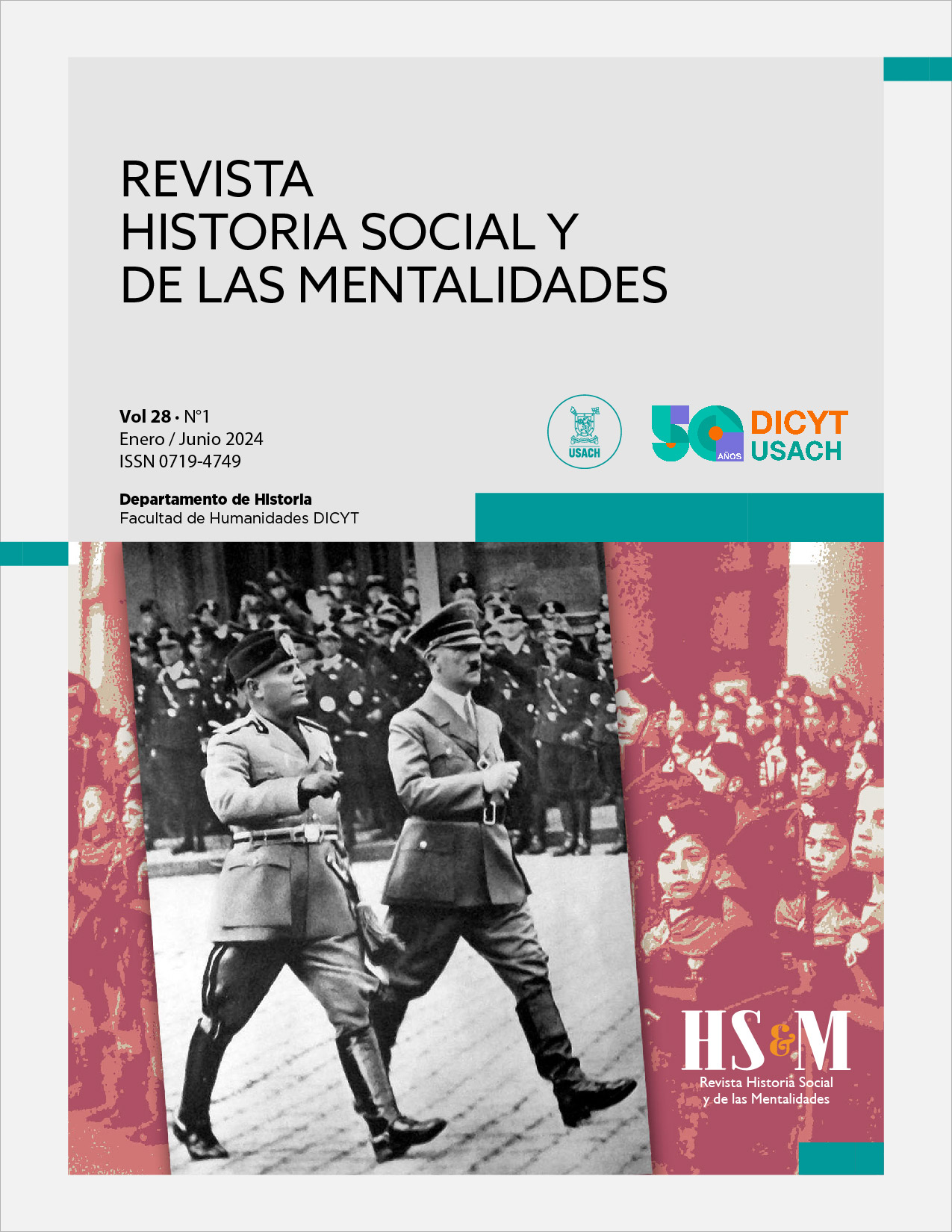
Fascism, Fascisms: 100 years
Vol. 28 No. 1 (2024)In recent decades, historiography has experienced a renewed interest in political history, giving rise to what is known as the ‘new political history’. This resurgence has brought a broader and more nuanced approach, going beyond events and prominent figures to examine the power structures, ideologies and social movements that shape politics.
Studies of fascism, neo-fascism and the right in Europe and Latin America have become particularly relevant, pressing us to delve deeper into these subjects. The rise of right-wing populist movements and the persistence of extremist ideologies have led historians to re-examine the past in search of parallels and explanations for contemporary political phenomena, underlining the urgency and importance of our research.
In this context, the dossier ‘Fascism, Fascisms: 100 years’ by historians Heloisa Paulo and Thiago Fidelis has emerged. Composed of four articles, it analyses the specific aspects of fascism in its context, weaving connections with other political and geographical structures with which it is in dialogue and the reasons for its relevance today.
-
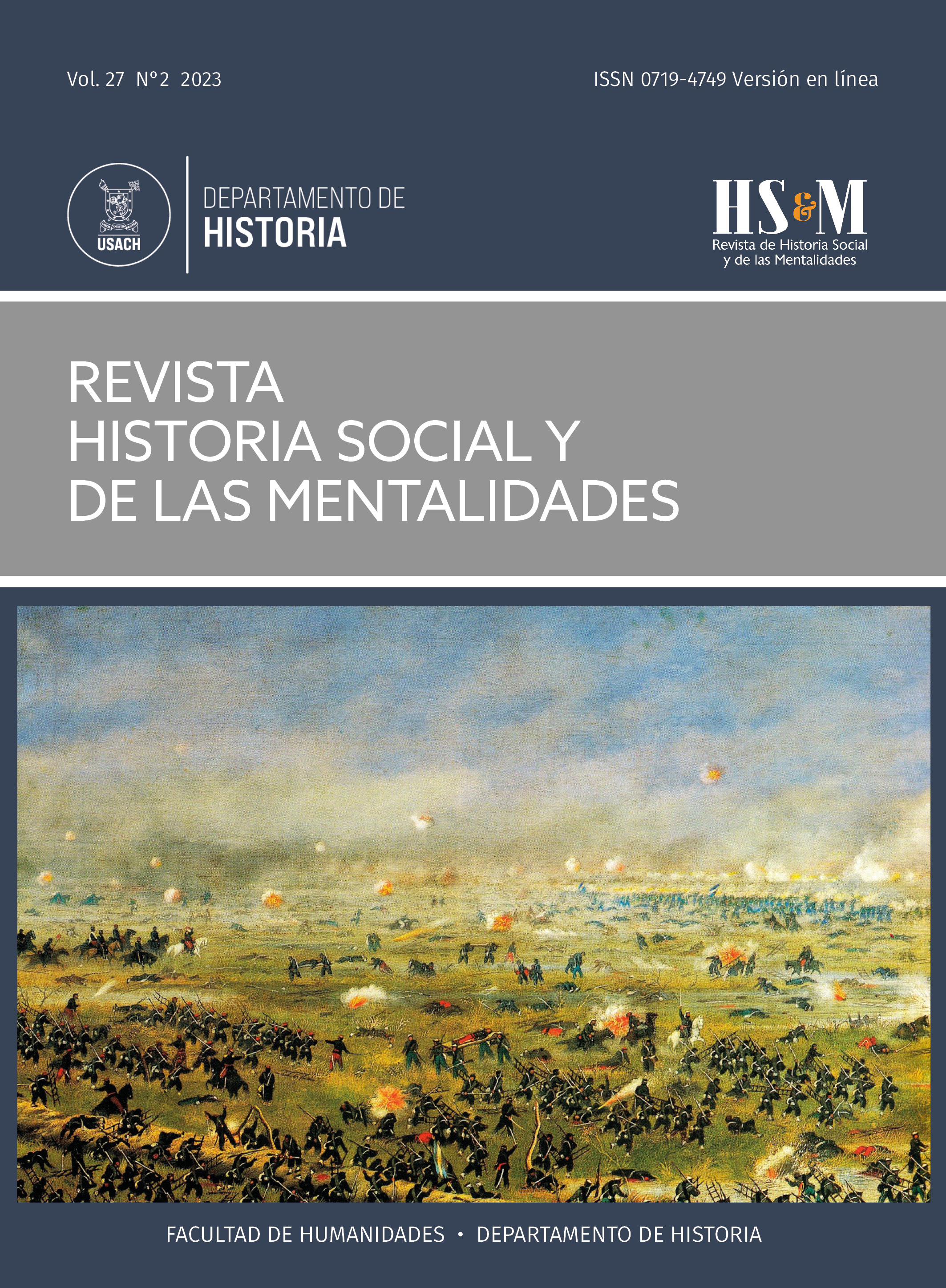
Wars, Memories and Nationhood in Spanish America. The Paraguayan War (1864-1870) and the War of the Pacific (1879-1883)
Vol. 27 No. 2 (2023)In the last two decades, the study of war has substantially renewed. The field of war and society studies has implied a shift from conventional military and diplomatic studies of conflicts to focusing on conflicts' social and cultural impact, especially in processes such as forming collective identities. The collective mobilisation of society, the systematic socialisation of nationalist discourses, the establishment of boundaries - real or fictitious - in the communities in dispute through processes of ethnicisation of differences and the sedimentation of collective memories are key aspects of this problem. This dossier takes up this debate based on the Paraguayan War (1864-1870) and the War of the Pacific (1879-1883). These wars involved a broad social mobilisation to complete the military cadres, implied an active participation of civil society to sustain the war effort, and fostered narratives denigrating the adversary and celebrating national identity.
-
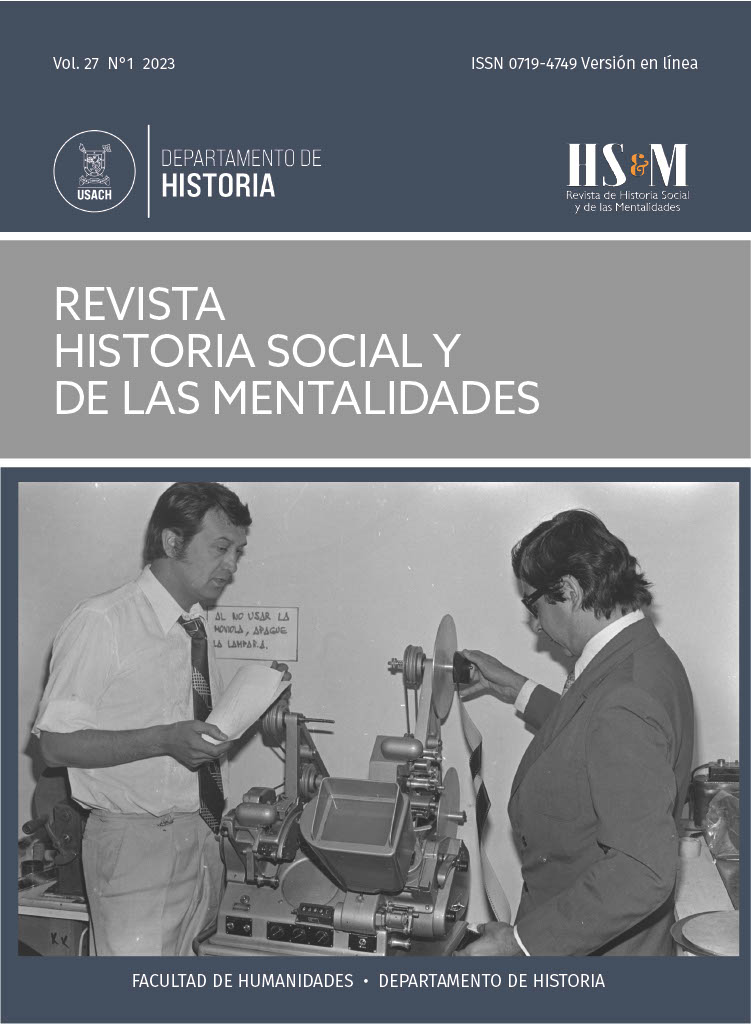
Relations between History and Memory in Latin American Audiovisuals
Vol. 27 No. 1 (2023)We are currently witnessing an accentuated proliferation of allusive images, films or television series that promoted as historical representations of the past. In other words, we could say that a kind of "public pedagogy" is being established concerning the past through audiovisual images. This sort of public pedagogy deployed by the audiovisual implies understanding the images not only as documents or sources the past but also as social discourses that propose different entries into the historical phenomenon that involve real struggles to "select" and establish visions and memories which, at certain moments in the present, become hegemonic. From this perspective, this semester's dossier brings together a series of national and international articles that address this debate in Latin America.
-
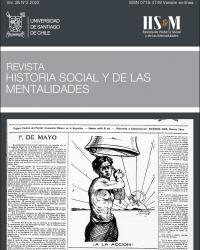
The Latin American Left in the 20th Century: National and Transnational Crossovers in Its History
Vol. 26 No. 2 (2022)The left in Latin America emerged hand in hand with global processes that combined with the local trajectories of the respective workers' movements in each country. For this reason, from its genesis, this political sector contained the characteristics and elements typical of the political culture in which it emerged. At the same time, however, its militants and political leaders never failed to recognise, with greater or lesser emphasis, the global character of the struggle in which the development of their respective collectivities is. Indeed, the international battle for socialism was a common characteristic of the large part of the Latin American left.
This dossier reflects on the political and cultural practices of the Latin American left in different periods. From different methodologies, we can see the national versus the international, even transforming themselves into transnational proposals. In this sense, this set of papers contributes to the debates coming from both political history and social history.
-
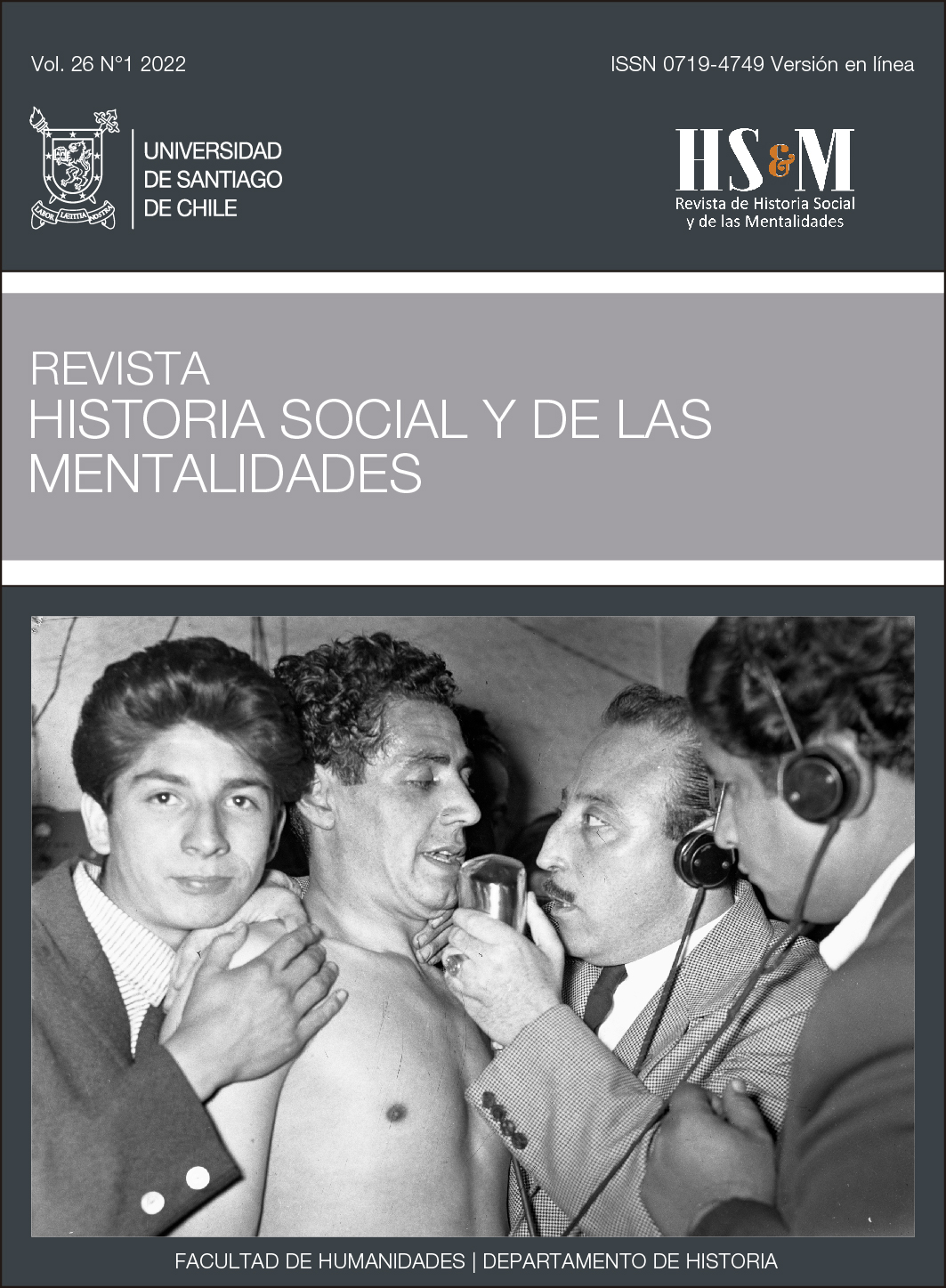
Make Politics. The role of the media in socio-political practice in Latin America. 19th - 21st century. Part 2
Vol. 26 No. 1 (2022)Transiting between history and communication has proved to be a successful exercise, as we offer a second installment of this exploration of the role of the media in socio-political practice in contemporary Latin America, unveiling the importance of the media in contemporary history
-
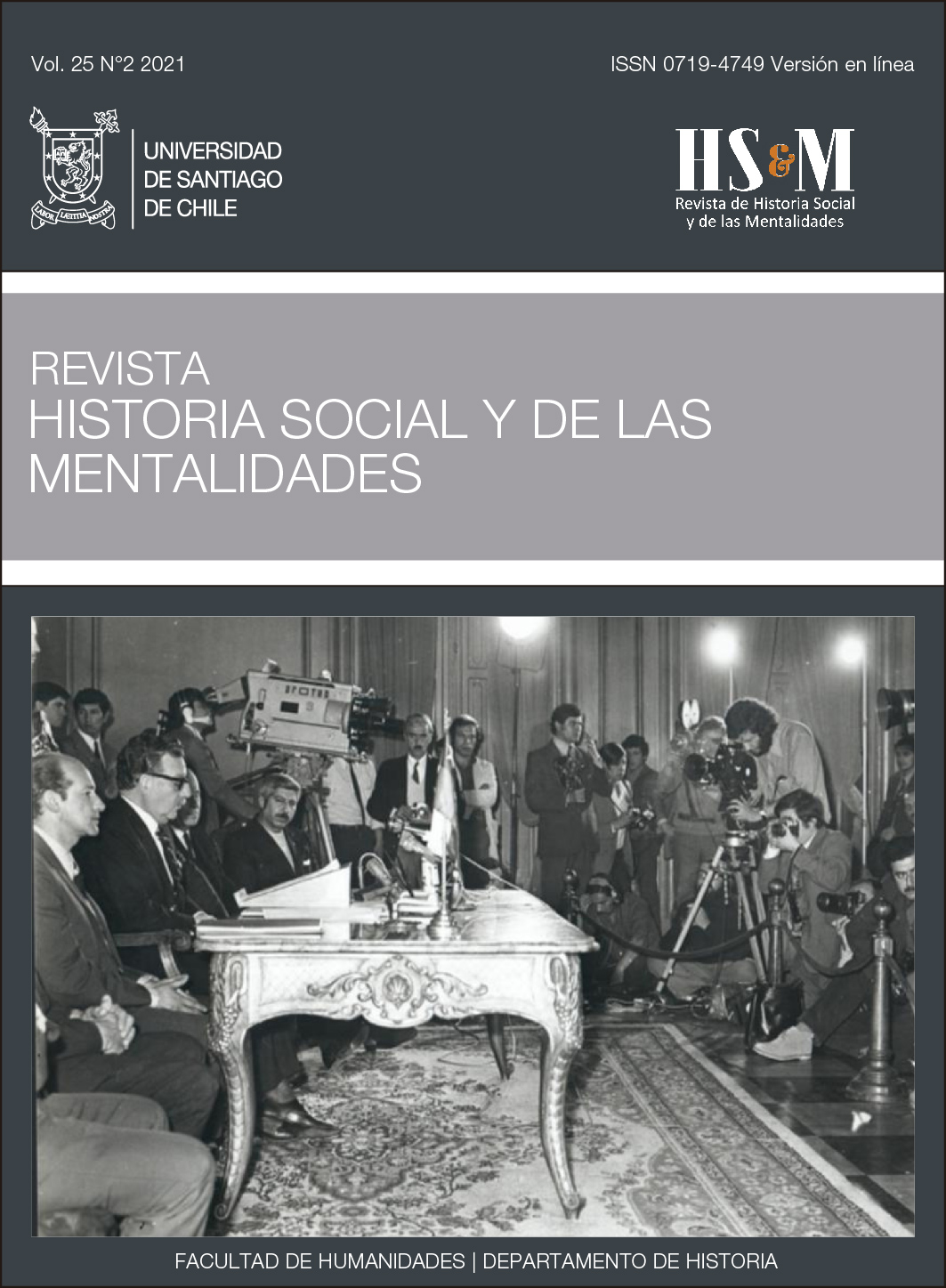
Making Politics. The role of the media in socio-political practice in Latin America. Centuries XIX-XXI
Vol. 25 No. 2 (2021)The exercise of politics is related to the speeches and messages disseminated by the media. Leaders, parties, intellectuals, and characters linked to the exercise and political theory have circulated their words in pages, minutes, or images to reach the most significant possible number of recipients. This dossier analyzes this relationship and pays attention to the theoretical-methodological convergence and the turn of the information industry. From the initial point of the political press to the significance of this category, the issues show us the development of the information industry during the 20th century. The function of the new forms of linkage established the parties with communication.
In this way, the different articles contribute with case studies, methodological studies, content analysis, or general reflections on the use of the media by politics, in addition, to rethink the historical meaning of the commercial press, the mass political press, and the militant press as an object-subject of study, as a political instrument or agent.
-
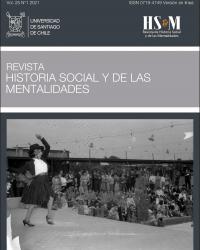
Open Subject Articles
Vol. 25 No. 1 (2021)The first issue of this year's edition reflects the diversity of historical problems that, each with its methodologies, is stressing the academic debate.
-
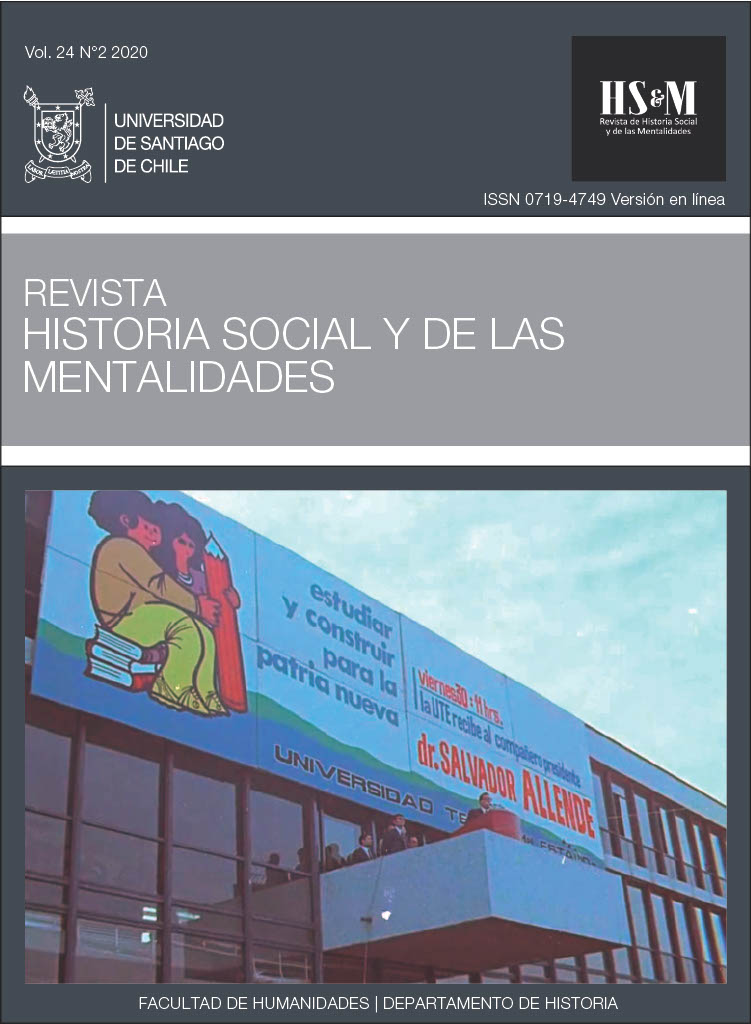
Open Topics
Vol. 24 No. 2 (2020)The Editorial Team of the journal Historia Social y de las Mentalidades dedicates this issue Vol. 24 N° 2 (2020), made up of articles with open themes, as a recognition of all the professionals who have participated in all the first lines that the pandemic demands of us today.
-
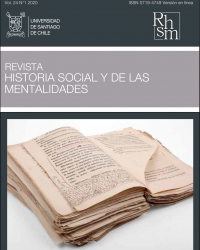
Archive and Historical Heritage
Vol. 24 No. 1 (2020)The archives have become more relevant in recent years, as they are no longer considered neutral repositories of information concerning the past. They have become a battleground for the contemporary world since their collections protect documents produced by state institutions, which citizens demand to challenge their predominance and the legitimacy of their actions over the social whole. Today, new conceptions have appeared about them, allowing institutions and social groups to develop a greater awareness of the vestiges of their daily activity - and the consequent extension of the concept of a document to non-written media - together with the gradual development of strategies and tools for their socialization and appropriation, opening the doors of premises previously reserved for specialists, either really or symbolically. In this sense, this dossier seeks to promote reflection and debate on the importance and meaning that archives give to current historiographic practice.
Cover photo: Courtesy of Archivo Central Andrés Bello, Universidad de Chile.
-
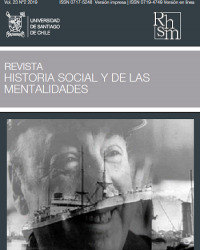
Migrations: Theory and History
Vol. 23 No. 2 (2019)The interest that the different migratory processes of which the world has witnessed has generated is no stranger to anyone. This dossier seeks to open the debate on the subject by analyzing how the circulation of large human flows around the world, produce different social, cultural, political and economic effects, which affect the way in which states (hospitality policies, international treaties, policies of labor insertion, border closures, etc.) and citizens (nationalisms, racism, social assistance organizations, etc.) address the issue.
-
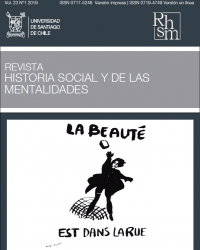
To fifty years of 68 as a global event: repercussions and relevance of an interconnected revolutionary atmosphere
Vol. 23 No. 1 (2019)This dossier proposes reflecting and rethinking both the importance and scope of the social and student movements that gave life to the phenomenon known as global 68, delving into the connection that existed between the different scenarios that gave life to a revolutionary atmosphere whose event continues to be great importance today
-
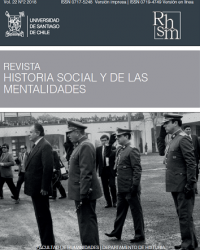
Transitions to democracy: new approaches and perspectives
Vol. 22 No. 2 (2018)Este número da cuenta de cómo la transición se ha convertido en un objeto y campo de estudio tanto en el Cono Sur como en España. A partir de distintas perspectivas analíticas proveniente tanto de las humanidades como de las ciencias sociales, los (las) investigadores(as) que componen este dossier dialogan y debaten sobre la complejidad que ha significado abordar estos procesos.
-

Chile and Europe: Circulation of discourses, practices, representations and people (XIX-XX Centuries)
Vol. 22 No. 1 (2018)This issue reflects on the ideas of circulation and transnationality by studying how different processes of interaction between actors and their outcome have been constituted and produced, and not as a characteristic or pre-existing attribute of these relationships.
-
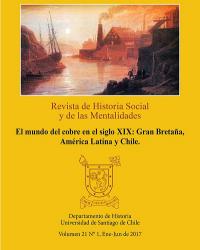
World of Copper in the Nineteenth Century: Great Britain, Latin America and Chile
Vol. 21 No. 1 (2017) -
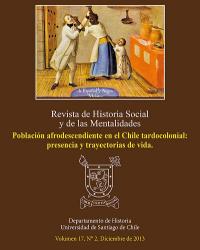
Afro-descendant population in late-colonial Chile: presence and life trajectories
Vol. 17 No. 2 (2013)

